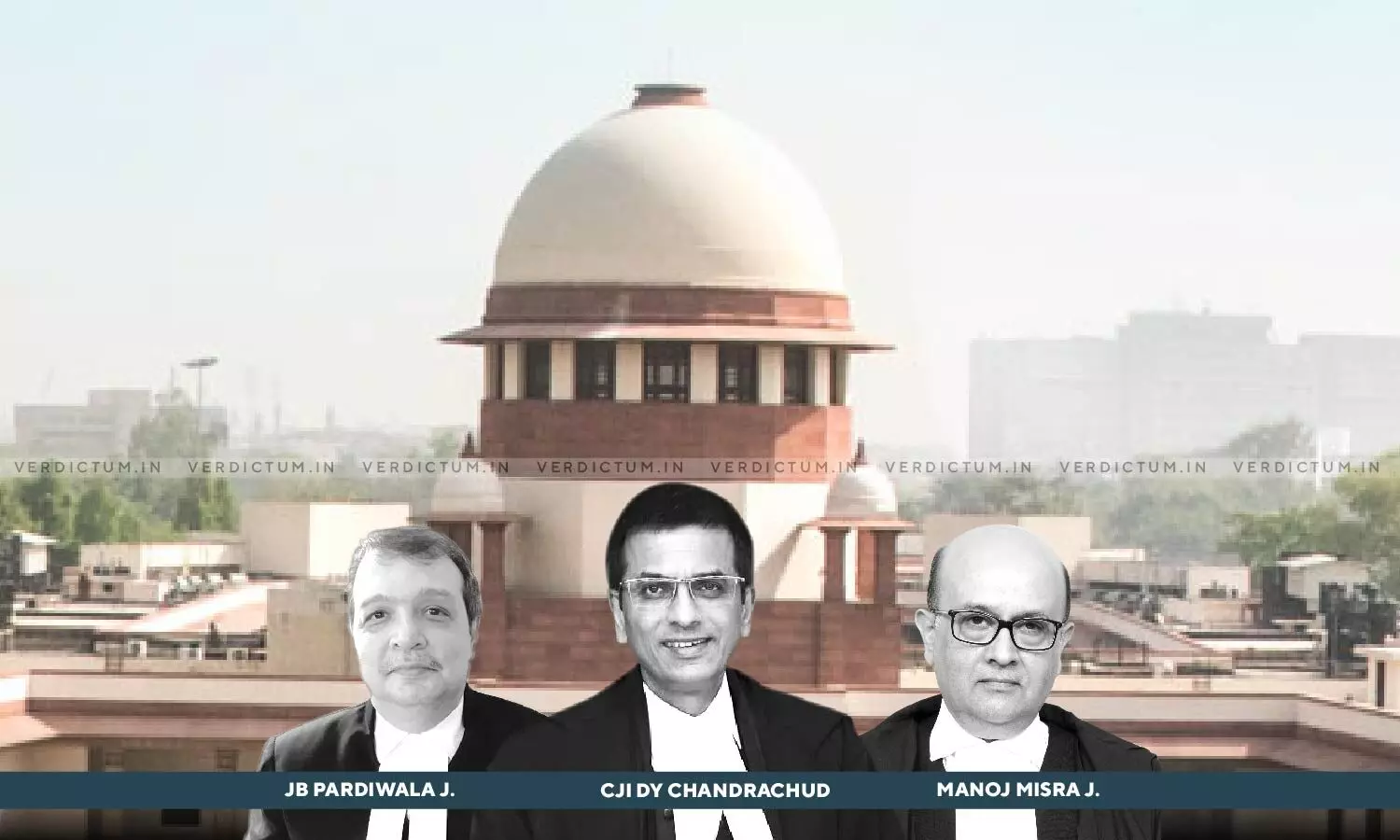
Apex Court Issues Notice In PIL By Senior Advocate Aabad Ponda Seeking Measures To Curb Rising Crimes Against Women
 |
|The Supreme Court today issued notice in a Public Interest Litigation (PIL) raising concerns over the increasing number of crimes against women, particularly rapes.
The Bench of Chief Justice DY Chandrachud, Justice JB Pardiwala, and Justice Manoj Misra issued notice in the matter after hearing Senior Advocate Aabad Harshad Ponda.
The petition filed by Senior Advocate Aabad Harshad Ponda, who has over 32 years of experience in criminal law and practices primarily in the Bombay High Court, has sought the Court’s intervention to address the root causes of these heinous crimes and to ensure the effective implementation of existing laws. The petition points out that despite India’s robust legal framework, which includes stringent laws against sexual offences, the frequency of crimes such as rape continues to rise, reflecting a failure in the proper enforcement and communication of these laws.
The petitioner filed through AoR Sandeep Sudhakar Deshmukh expressed concern over the gap between the creation of laws by the legislature and their dissemination to the public, particularly in terms of educating society about the consequences of these offences. It underscores the urgent need for action before such crimes occur, rather than merely reacting to incidents. It highlights that while the courts deal with offenders after the fact, the real challenge lies in preventing the commission of the crime itself.
The petition notes that despite more stringent rape laws introduced after the 2012 Nirbhaya case, including harsher punishments, the rate of such crimes remains alarmingly high. "Despite the rape laws being made more stringent post Nirbhaya, this crime only seems to be on the rise. Therefore, reacting to such situations by making the punishments for rape more stringent with a knee-jerk reaction is no solution to the problem," the petition reads
It also states that several states, including Maharashtra and Andhra Pradesh, have pushed for mandatory death sentences for rape and murder committed in the same incident, with bills passed awaiting Presidential assent. West Bengal has also sought similar legislative changes. However, the petitioner argues that these measures alone will not solve the problem, raising concerns about the legality and validity of mandatory death sentences based on precedents set by the Supreme Court in Mithu v. State of Punjab (1983) and Section 27A of the Arms Act. These precedents deemed such provisions unconstitutional, as they may infringe on fundamental rights.
The petition further raises the issue of misuse of stringent laws, warning that mandatory harsh punishments could lead to false accusations and unfair trials. It cites the possibility of innocent individuals being denied basic rights, such as the ability to seek anticipatory bail, due to the severe nature of the prescribed punishments.
In addition to addressing legal reforms, the petitioner also emphasizes the need for societal change. The petition advocates for educational efforts and awareness campaigns to shift the deeply ingrained cultural attitudes towards women. It calls for the equal treatment of women and men in society, starting from the grassroots level at home, to prevent the objectification and violation of women. According to the petition, changing the male mindset and instilling a genuine fear of the law is crucial in preventing future crimes.
The petition concludes that while punitive measures are essential, they must be accompanied by broader societal reforms that address the root causes of gender-based violence and promote respect for women at all levels of society.
The petitioner has prayed for the following directions:
1. To all educational institutions across India, including government-aided schools, to incorporate penal laws related to rape and offenses against women and children under the Indian Penal Code (IPC) and the Protection of Children from Sexual Offences (POCSO) Act into their syllabuses.
2. For the introduction of moral training, which would promote gender equality and educate young boys on respecting the rights and dignity of women and girls. The aim is to change the mindset of boys from a young age, thereby preventing future crimes.
3. It calls for schools to educate children on their rights, particularly in relation to reporting incidents of domestic violence or crimes occurring within their households or surroundings, without fear of retaliation. By raising awareness, the petitioner argues, wrongdoers can be held accountable, and justice can be served.
4. It seeks orders for local government authorities at various levels, including talukas, districts, and cities, to undertake public education campaigns through advertisements, seminars, pamphlets, and other means. These campaigns would aim to spread awareness about penal laws related to rape and sexual offenses, as well as emphasize the importance of gender equality.
5. It emphasizes that public awareness campaigns should be launched across all forms of media, including print, electronic, and online platforms. It calls for regular and repeated messages to be broadcast through television, social media, and other platforms, educating the public about the legal consequences of committing rape and highlighting the importance of treating men and women equally.
6. It also proposes the use of popular public figures in advertisements to raise awareness about zero tolerance for rape and the need to ensure that both men and women, as well as boys and girls, are treated equally in society.
Cause Title: Aabad Harshad Ponda v. Union of India & Ors. [W.P. (Crl.) No. 382/2024, Diary No. 41037 / 2024]